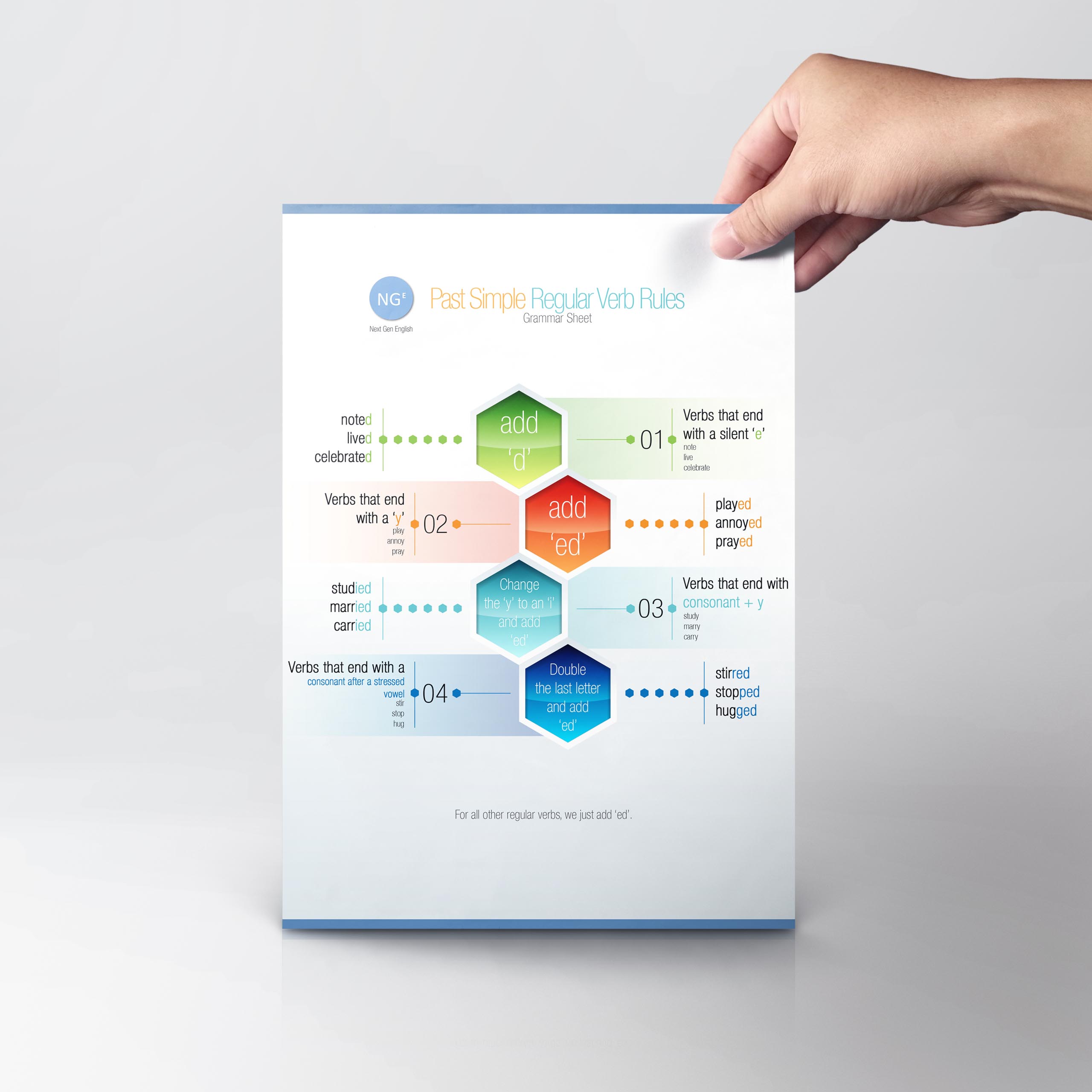Past Simple Regular Verb Rules
Past Simple Regular Verb Rules
What are the rules for past simple regular verbs?
When using the past simple, it’s not always the case that we just add ‘ed’ for regular verbs. Sometimes there are other changes that we need to make to be sure that we have the correct spelling of the word.
Sometimes we add ‘ed‘, sometimes just ‘d‘, and sometimes we remove they letter ‘y‘ and add ‘ied‘.
General Rules:
- For regular verbs that end with a silent e, like note, live and celebrate we only need to add ‘d‘.
- For regular verbs that end with vowel + y, like play, annoy and pray we add ‘ed‘.
- For regular verbs that end with consonant + y, like study, marry and carry, we change the ‘y‘ to an ‘i‘, and add ‘ed‘.
- For regular verbs that end with a consonant after a stressed vowel, like stir, stop and hug we double the last letter and add ‘ed‘.
- For all other regular verbs, we simply add ‘ed‘.
Exceptions:
- For regular verbs that end with a consonant after a stressed vowel, we don’t double the last letter if it’s ‘w’ or ‘z’.
- In British English, we double the last ‘l‘ for words that end in ‘consonant + el‘, like cancel, tunnel and level, before adding ‘ed‘, even though the last vowel isn’t stressed.
eg. cancelled, tunnelled, levelled.
Past Simple Forms
Regular verbs
| Positive Form | Negative Form | Question Form |
|
|
|
Irregular verbs
| Positive Form | Negative Form | Question Form |
|
|
|
The verb ‘to be’
| Positive Form | Negative Form | Question Form |
|
|
|






very nice help , thank u..
You’re welcome! 👍🏾
Thanks a lot
You’re welcome! 👍🏾